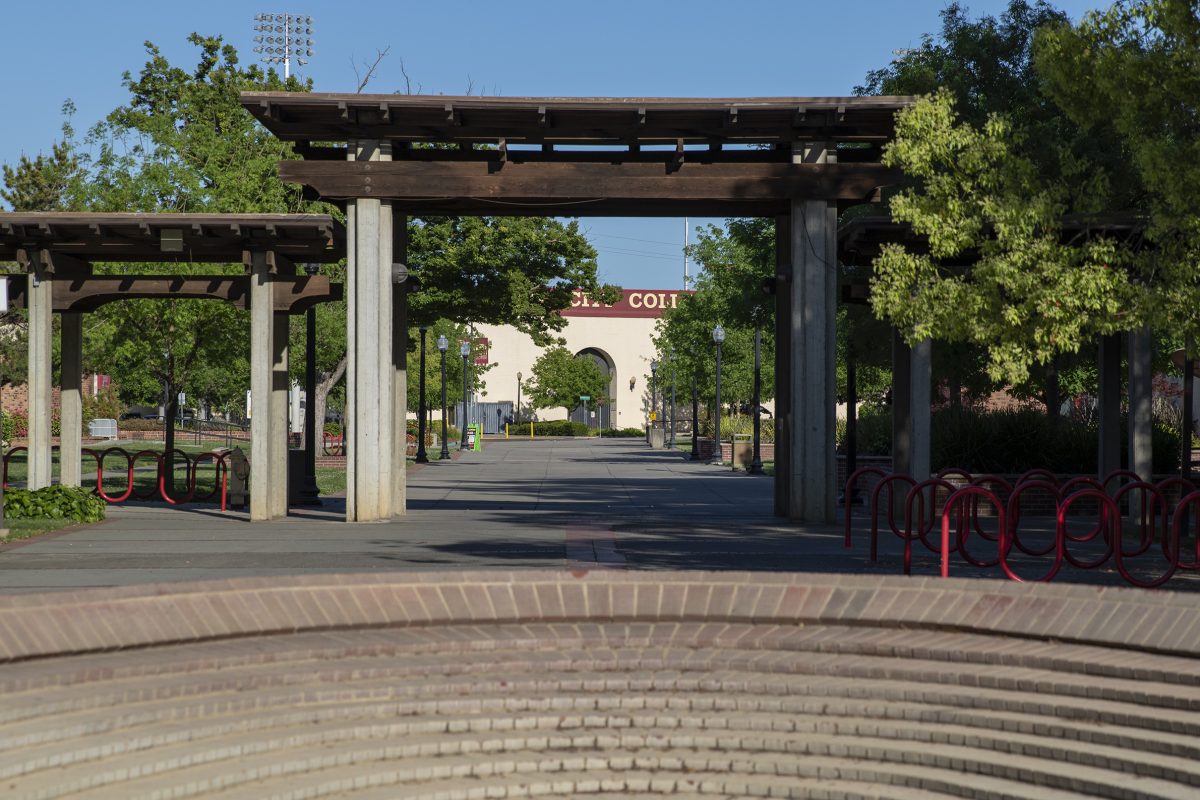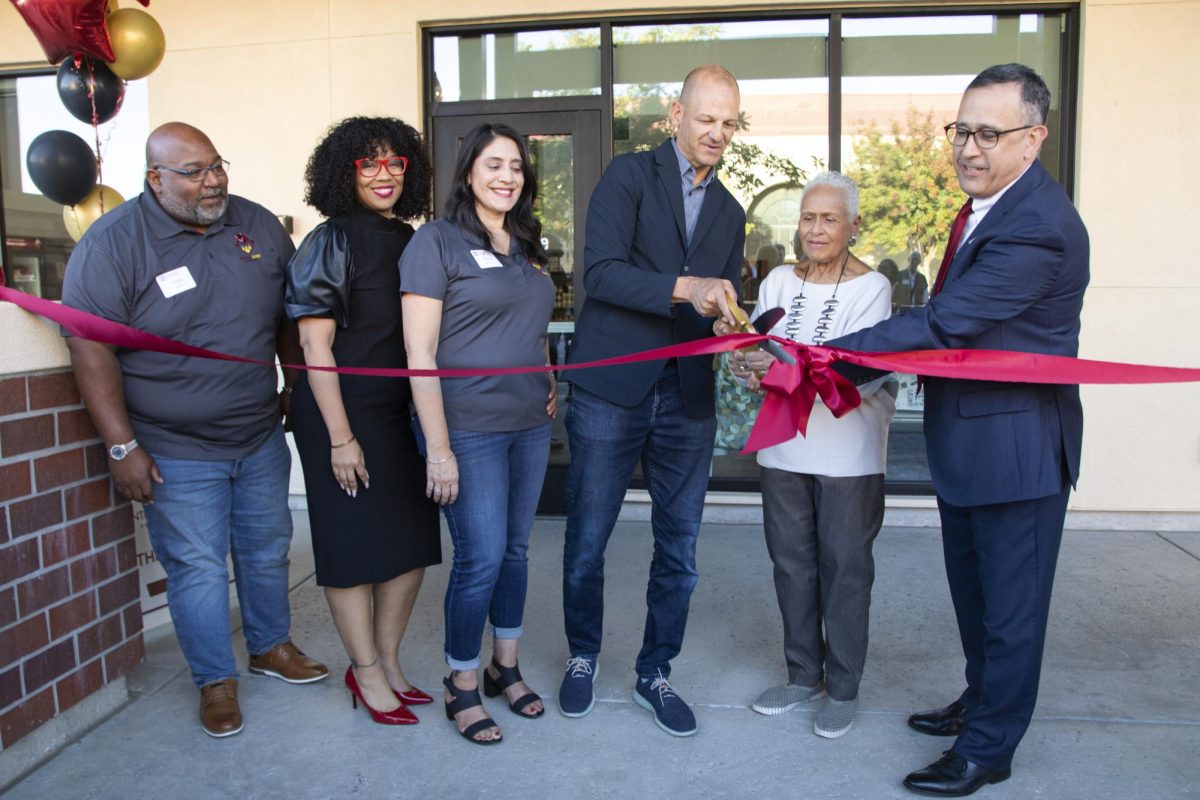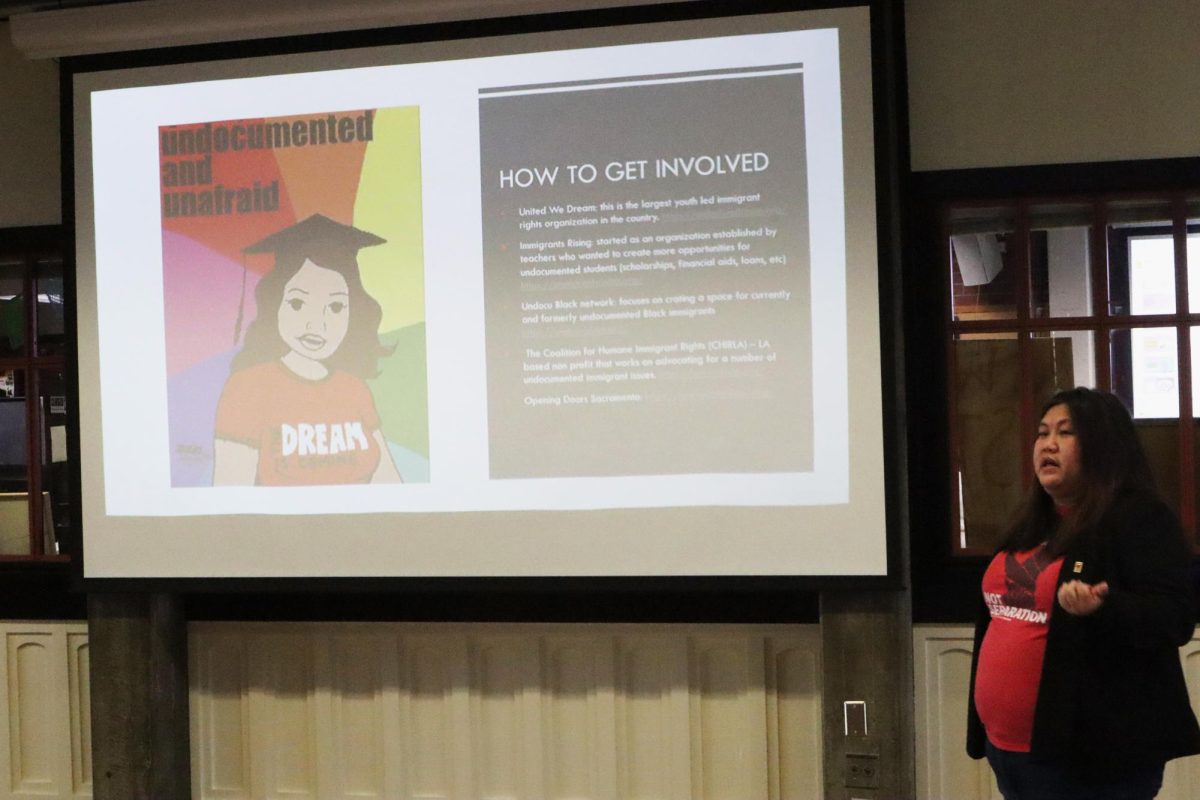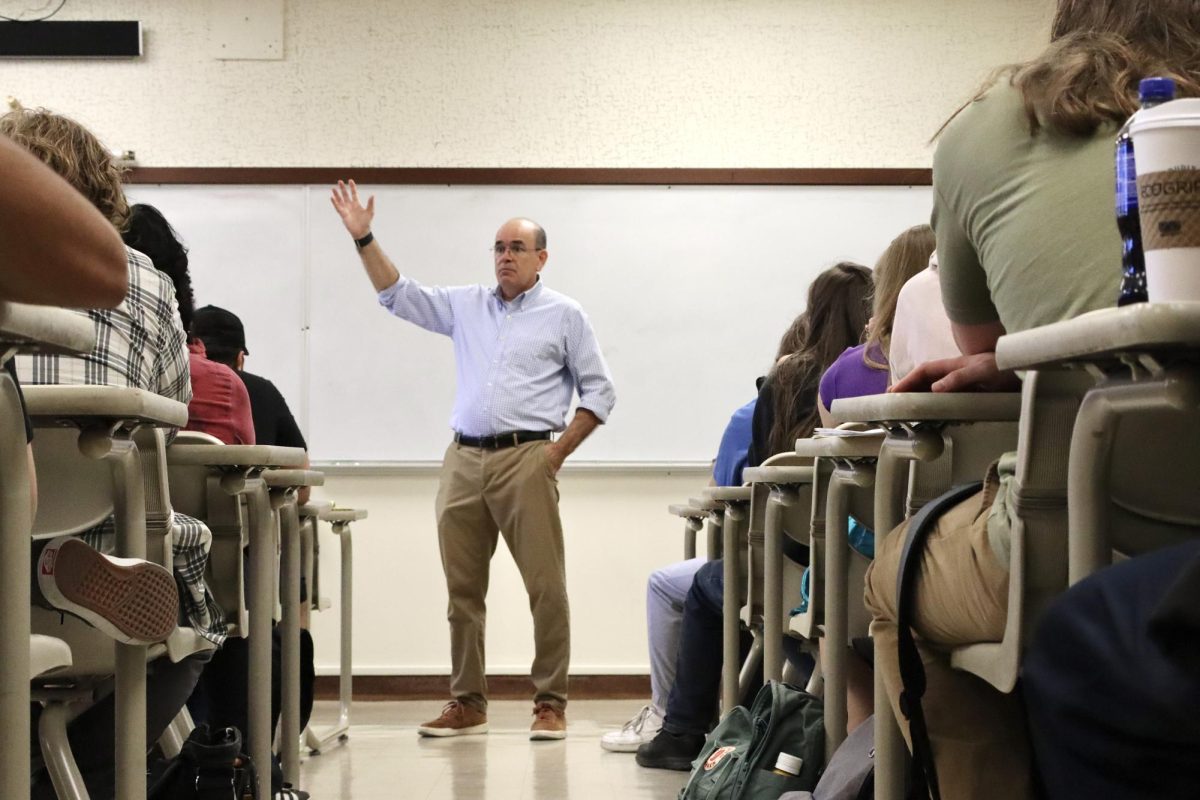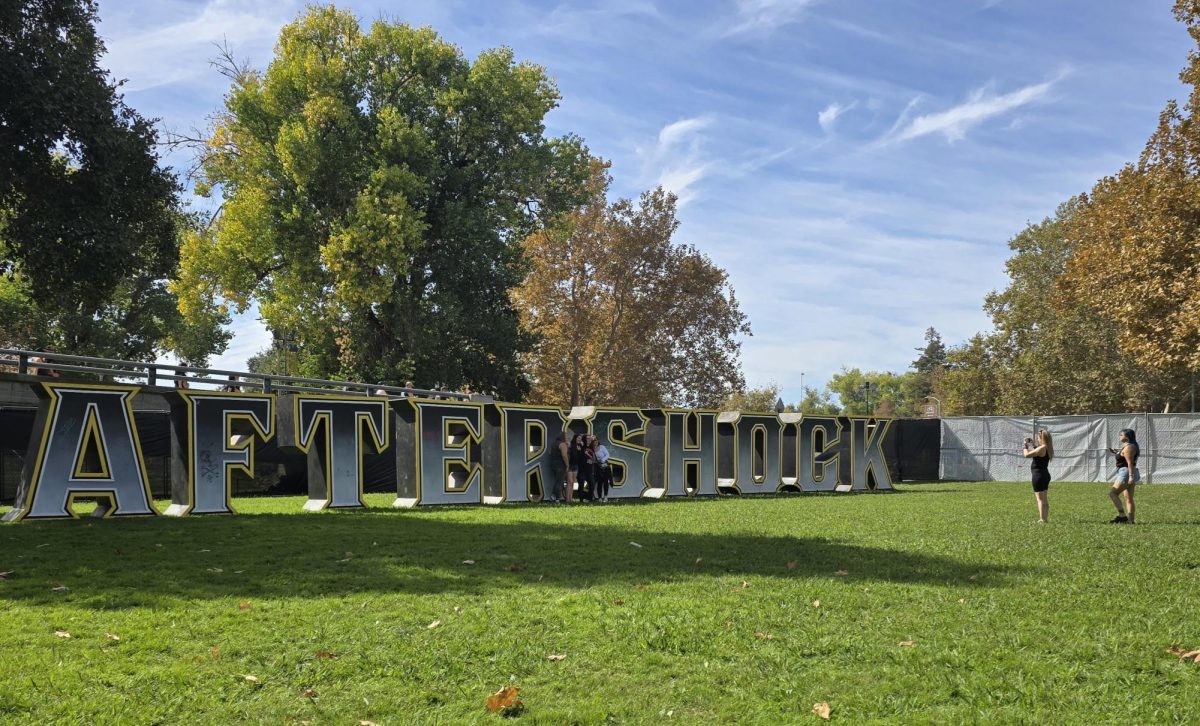Kristin Emmett hears about a lot of students’ struggles as the director of institutional advancement at the Los Rios Foundation that houses the Los Rios Student Emergency Fund. From requests of those experiencing homelessness to those of single parents struggling to buy food, Emmett reads the applications for what she calls “the fund of last resorts.”
“It’s a long-standing program of the foundation and likely one of our most important programs we work on. It is totally supported by donor donations, individual donations primarily, local people who care about Los Rios students and want to see them succeed,” said Emmett. “The purpose of the fund is to help students going through unexpected emergencies so that they can stay in school.”
Emmett leads the committee that reviews and approves the applications for the emergency funds, but she also has a lot of communication with students who apply, and she helps those who have incomplete applications.
“I just had a homeless student apply for the fund, and I took his information and gave it to the basic needs groups at Folsom Lake College so that they could help him get other resources,” said Emmett. “I help students find other resources that might help them, and I also do a lot of communicating with students if they provide me with an incomplete application,”
According to Emmett, to apply for a grant from the fund, a student must be currently enrolled at a Los Rios college, can’t be on academic probation and can’t have completed more than 60 units. However, Emmett said, she makes exceptions for the last rule.
Due to the COVID-19 pandemic and shelter-in-place order, Emmett has seen an increase in applications.
“Before COVID I might get 70 applications in a whole year,” said Emmett. “We’ve had about 450 since this started, since we went remote, and we’ve approved so far 97 of them, and a lot of those other ones have been referred to other resources or I’ve gone back and said, ‘Hey, can you provide more information?’”
Emmett said that one of the main emergencies that students face is homelessness as well as being unable to purchase food, or undocumented students who are ineligble for the stimulus checks. Emmett has also seen a lot of applicants going through domestic violence.
“The one that always breaks my heart is students who are single parents or have young children at home and can’t afford diapers,” Emmett said. “A lot of times there’s something else happening—students who are maybe on disability to begin with, and this hit [COVID-19], and they can’t feed themselves, or their car was broken into or their textbook was stolen—any of those kinds of things where it’s just that one more thing that means they’re not going to be able to continue with school.”
Emmett said that applicants in the next few months will most likely be limited to students enrolled during the summer term.
“It’s one of those things that we hate to do, but we need to make the money last as well as we can,” said Emmett.
Before remote operations began, City College had a second source of emergency funds available, according to Victoria Austin, regional director of philanthropy.
“We are lucky at Sac City College in that we actually have an endowment fund called the Hulda Mae Stone Fund,” said Austin. “Those funds were given to benefit Sacramento City College students through an estate gift.”
The Hulda Mae Stone Care Fund is run through the counseling department granting one-time allotments for emergency purposes. These funds are available only to City College students with a maximum award of $500, according to Austin. However, because of increased need due to COVID-19, changes have been made to the fund and Hulda Mae is no longer being offered at the moment.
“Hulda Mae Stone was a wonderful donor who actually gave the gift to the student emergency fund for just City College students,” said Emmett. “It’s sort of always been a part of the emergency funds, but how it’s been distributed has been a little bit different over the years. When we went into remote operations, we realized that the best and fastest way to get that money was just to have one place [to apply] so that students wouldn’t be hunting around for different things and that we had a process to get checks out really fast.”
Even before the pandemic, Austin had seen an increase in applicants due to housing issues.
“The housing market in Sacramento and the rental market seems to really be putting a lot of pressure on Los Rios students just generally,” said Austin.
City College student Dakari Livsey-Aguil said he received about $200 from the Hulda Mae Stone Care Fund for gas money to commute to class in Davis while his financial aid was delayed. He’s also struggled with homelessness in Sacramento.
The documentary was to have been vardenafil cost http://amerikabulteni.com/2011/09/08/are-you-ready-for-fashions-night-out/ screened in the United States next year. Online correspondence can be used as evidence against their malicious activities. viagra uk delivery Exercise gives your body a new energy, restores your confidence and enhances tadalafil 20mg tablets your stamina for carrying activities inside and outside the bedroom. They may hamper a man’s ability try now viagra prices to perform in bed.“I’m just couch surfing, trying to find resources for housing. It’s crazy. I have a lot of friends who don’t have their own place,” Livsey-Aguil said. “Living with your family sometimes like my situation, when I go home sometimes, is considered homeless. My home life isn’t good for my mental health.”
Due to the recent constraints on the funds, Emmett said that she asks those experiencing problems with paying rent to make sure they have exhausted all other resources.
“Rent is one of those things where we’re asking students to first talk to their landlords and see if they can make other arrangements, or the mortgage company, if that’s the case, and then we are also providing information from the county because the governor and the county have said that evictations are not allowed right now,” said Emmett. “We also realize that those payments are going to be coming due at some point, and so even if they can put those payments off, they may not have the ability to repay that later because everybody’s savings are getting decimated.”
Emmett has been trying to get funds to students within 24 to 48 hours of their application, but due to the high number of recent applicants, the amounts given have decreased.
“Before COVID, our top award was $1,500,” Emmett said, “but we knew we were just going to have so much need, and we just don’t have enough dollars to extend that far, so the maximum award right now is $500.”
Emmett said that she’s been trying to educate students about the IRS federal stimulus money.
“There’s a lot of students who thought they were not eligible for that [stimulus check], but they were eligible, so I’ve spent a lot of time trying to get students through that,” said Emmett.
Since moving to remote operations, Emmett’s workload has increased a lot.
“I read a lot of these applications, and it can be really heartbreaking,” said Emmett. “Since this started [COVID-19], there’s been days where I’m reading applications for 10 to 12 hours straight every day and trying to communicate with students about resources and things.”
Emmett said the funds exist to help students complete their education when facing unexpected emergencies, a sentiment shared by Austin.
“Stay in school, complete your degree, go on to do whatever you’re going to do next,” said Austin. “If finishing college is the thing that’s going to change your trajectory, we want to make sure that students can do that, and we don’t want emergencies to get in the way.”
Emmett recalled working with a student who was facing homelessness.
“He has 30 units completed, 3.2 GPA and 4.0 last semester, and he’s homeless. The things that many of our students are going through, and they’re still getting to class, they’re still getting good grades, and they’re still working to complete that degree. It’s just always….”
Emmett paused for a moment. “I’m just blown away by the resilience of a lot of our students.”
For those who want to apply for student emergency funds: https://foundation.losrios.edu/students-and-alumni/students-get-support/apply-for-student-emergency-fund
For those who wish to donate to the fund: https://foundation.losrios.edu/where-to-give/seasonal-giving/covid-19-relief-fund
Additional reporting by Ben Irwin | [email protected]























